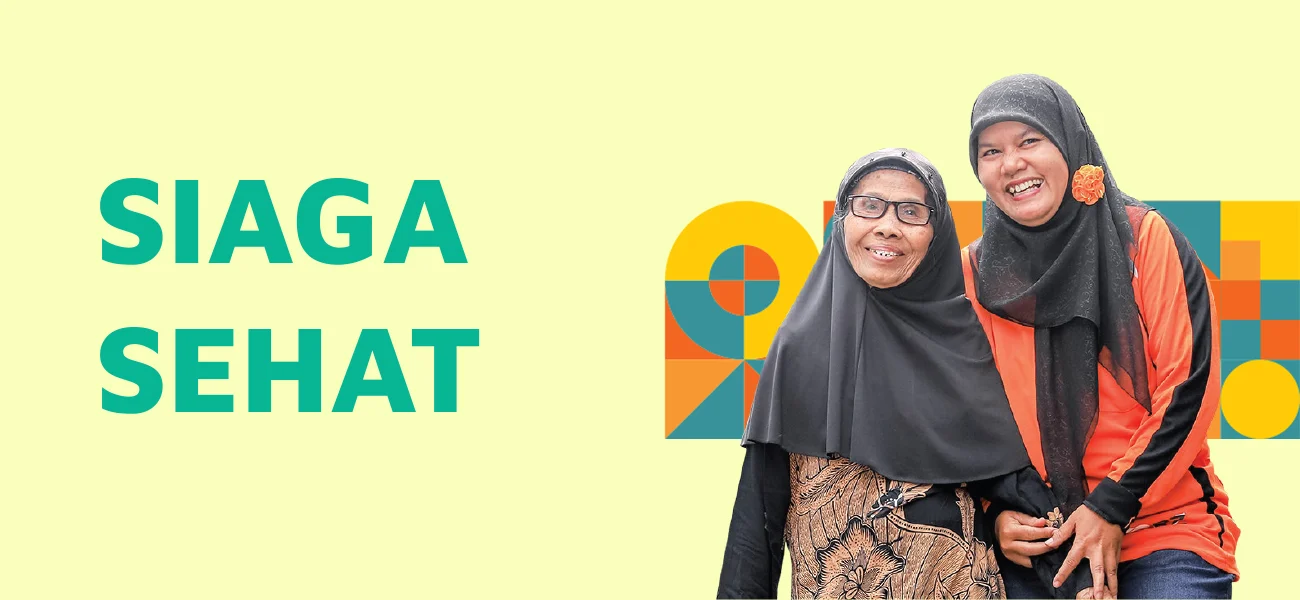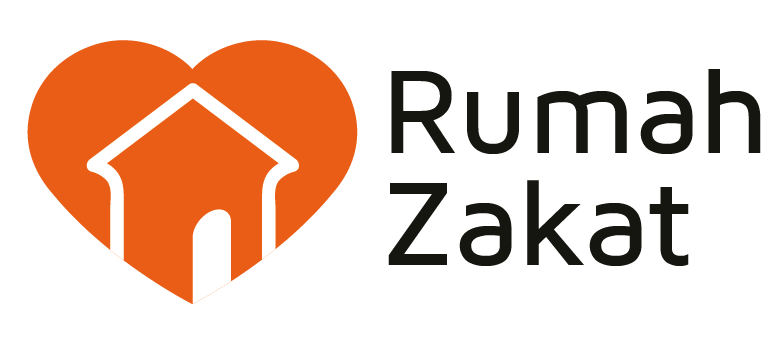HEALTH PROGRAM
Rumah Zakat is a national zakat management organization owned by the Indonesian community that handles zakat, infak, sadaqah, and other humanitarian funds through a series of programs, one of which is health.
The issues addressed by Rumah Zakat in the health sector are Stunting and wasting (malnutrition), Threats to elderly well-being (basic needs fulfillment, neglect, etc.), Access to safe drinking water and sanitation, and Food insecurity.
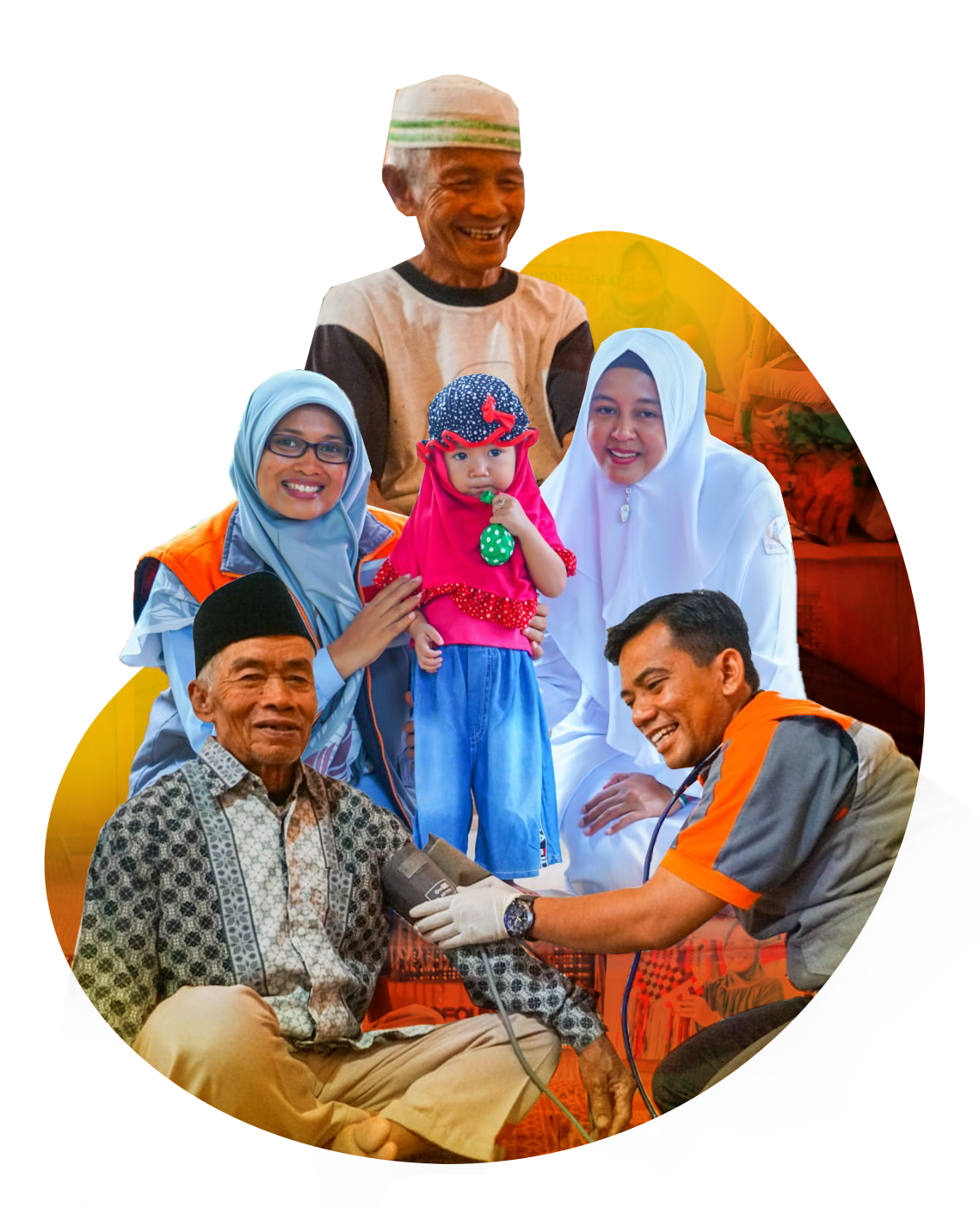
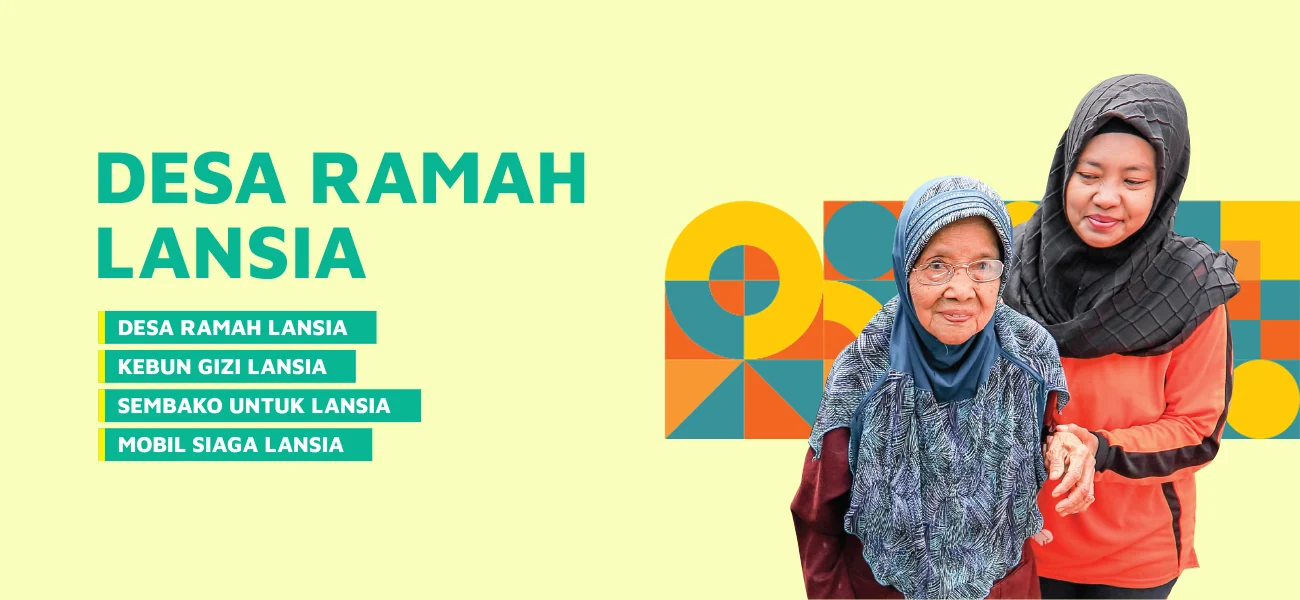
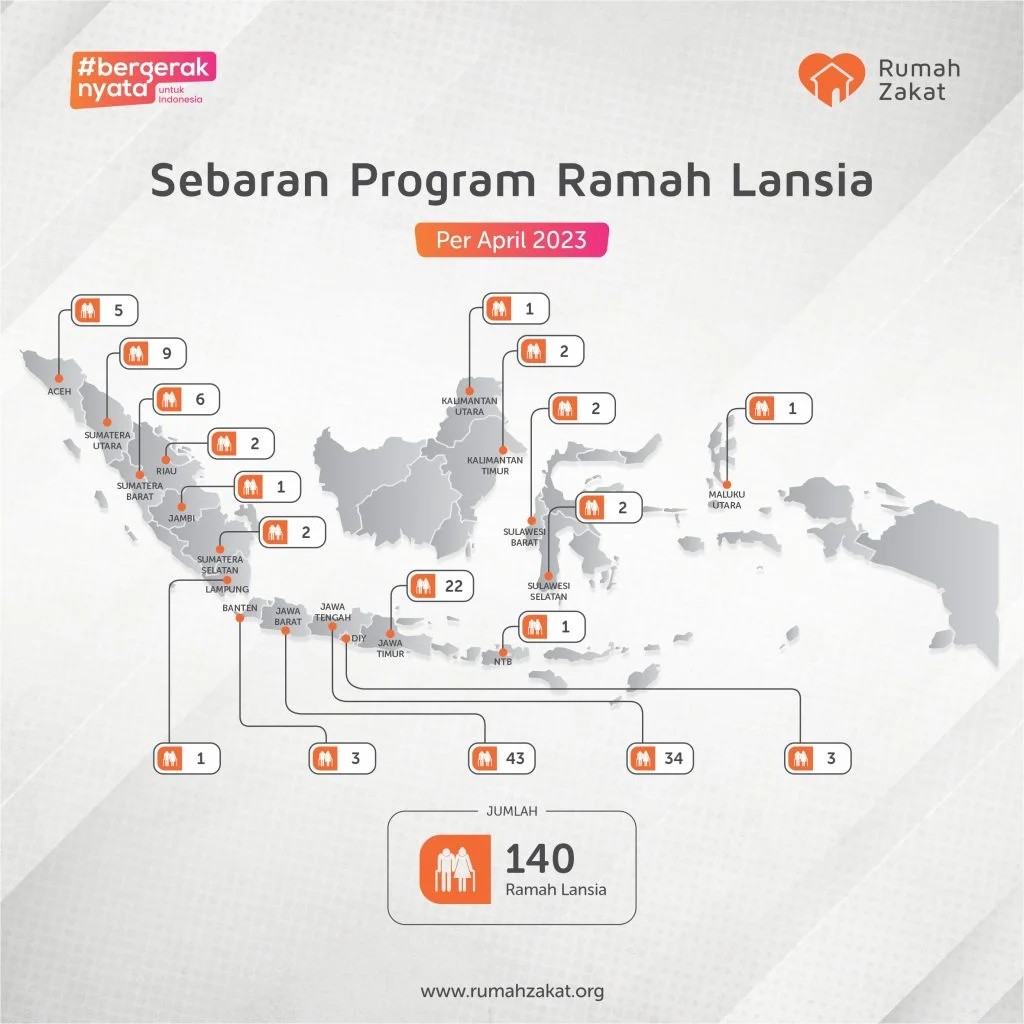
The Elderly-Friendly Program is an initiative designed to provide elderly individuals with a supportive social and physical environment to meet their needs and help them stay healthy, active, and productive.
The long-term goal is to create elderly-friendly villages to ensure seniors are healthy, active, independent, and productive. The short-term goals are to enhance the competency and skills of health cadres in elderly care and to increase community awareness to support the needs of seniors in their later years.
In practice, Rumah Zakat has established 140 Elderly-Friendly Villages, benefiting 3,115 recipients.
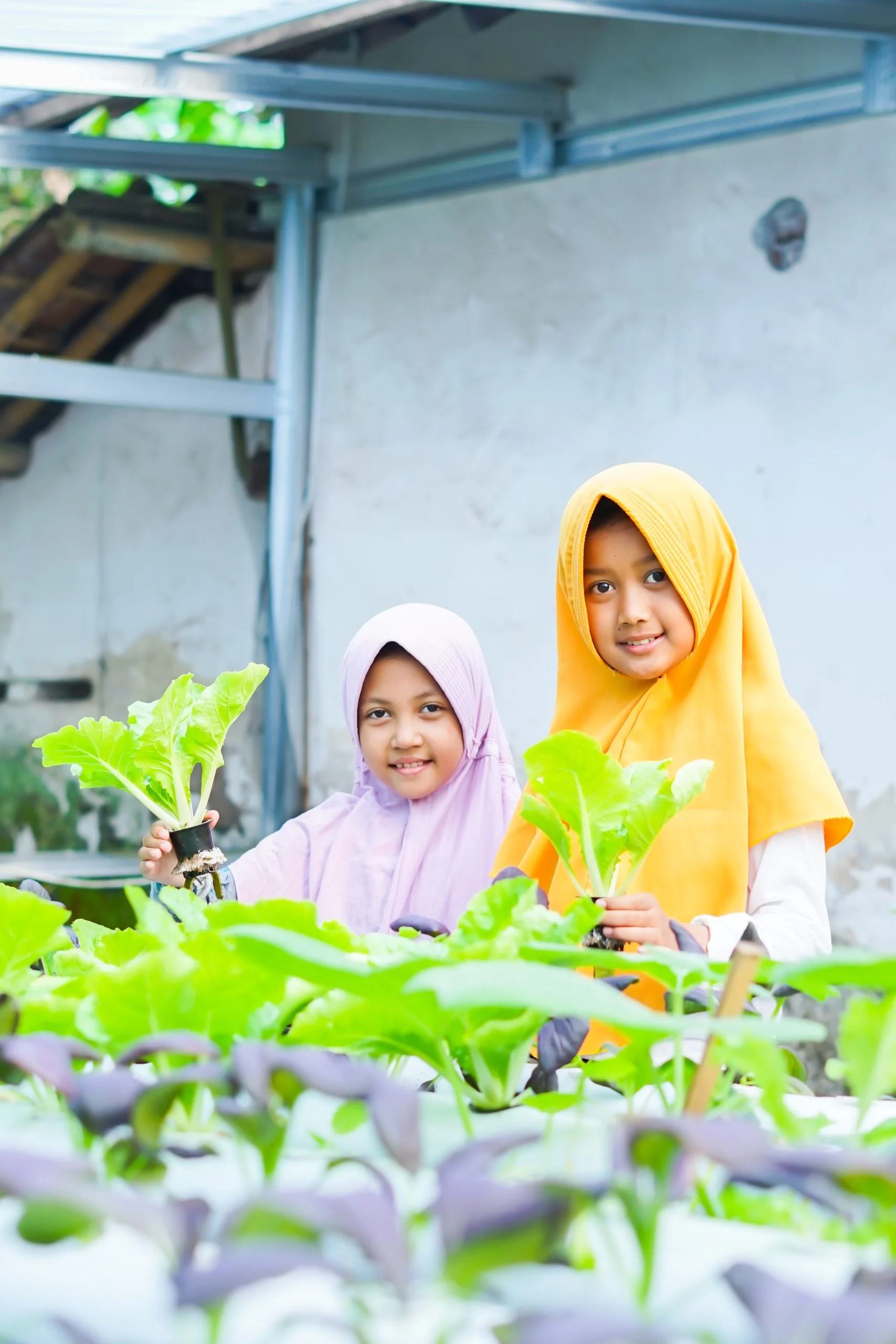
Nutrition Garden
Utilization of land to meet nutritional needs through the cultivation of vegetables or fruits. This program includes education as well as the formation and training of nutrition garden cadres. It involves setting up land/planting media, seedling and planting, harvesting and distribution of results, and program development towards sustainability.
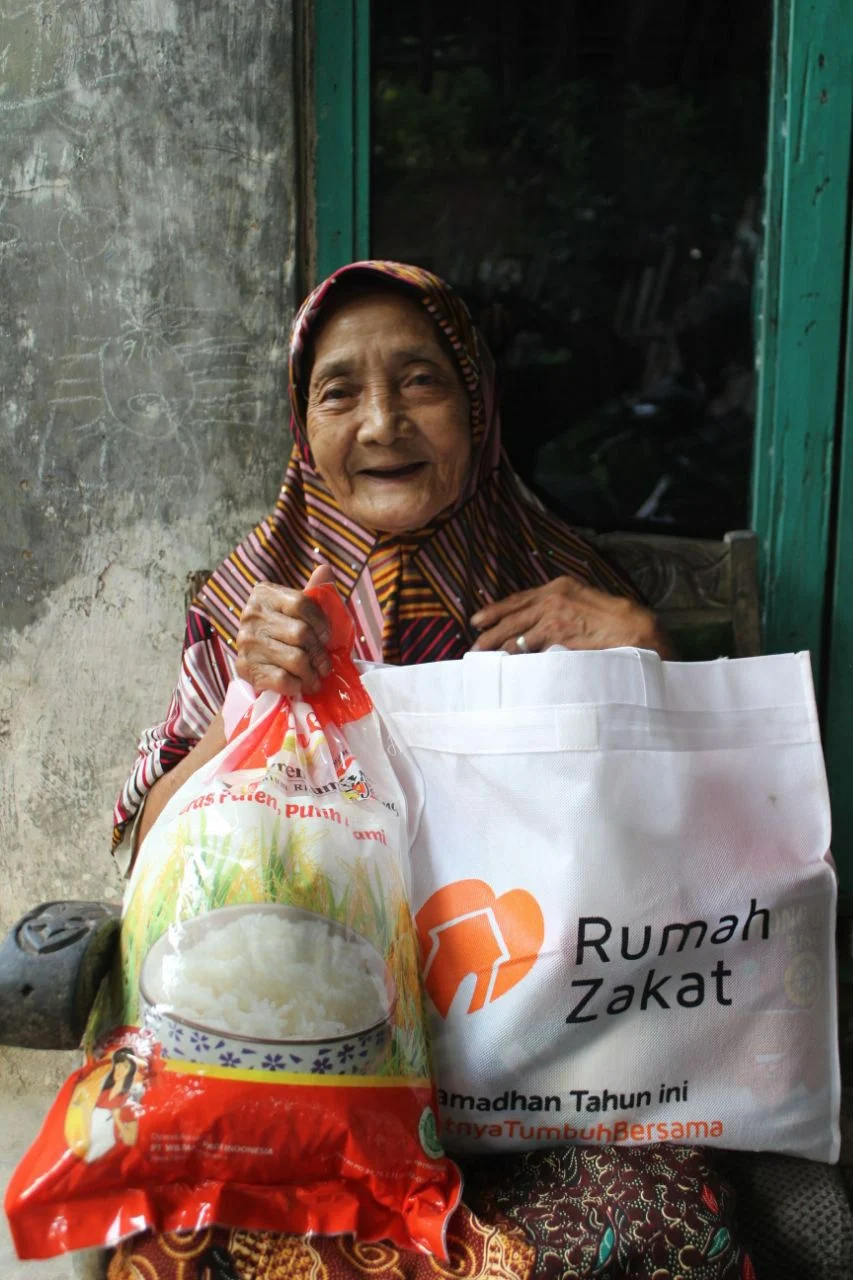
Staple Food Supplies for the Elderly
Providing daily necessities assistance to the elderly who have experienced limitations in their activities and difficulties in meeting their needs. This assistance is distributed in the form of basic daily necessities for the elderly (rice, animal protein, vegetables, fruit).
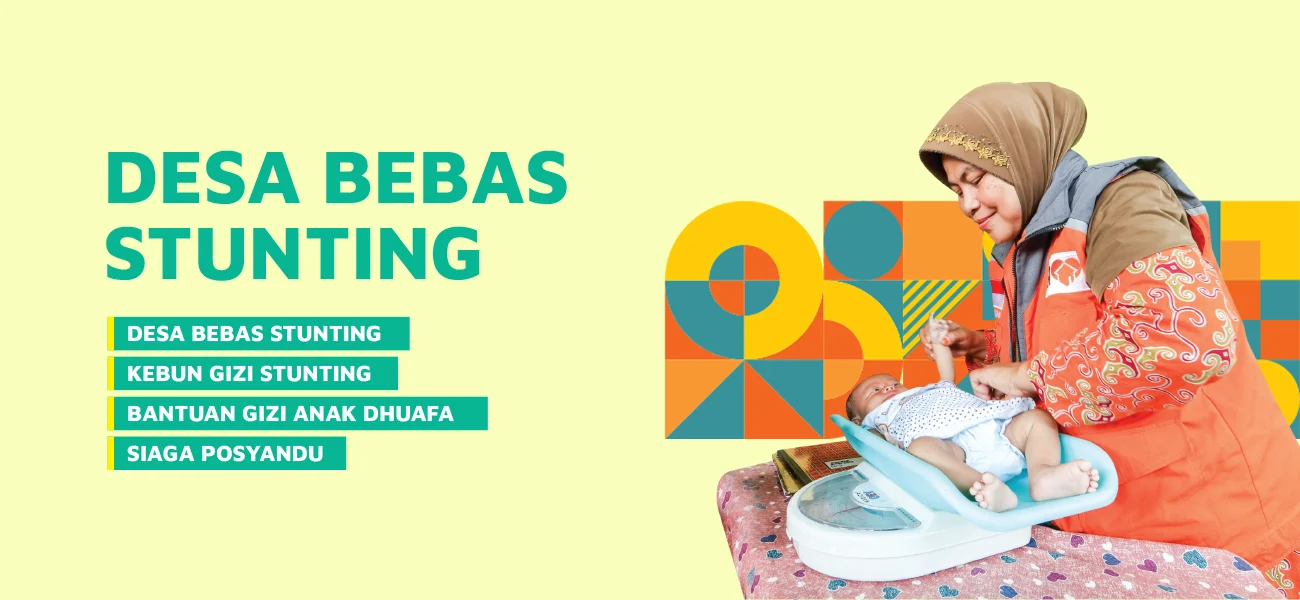
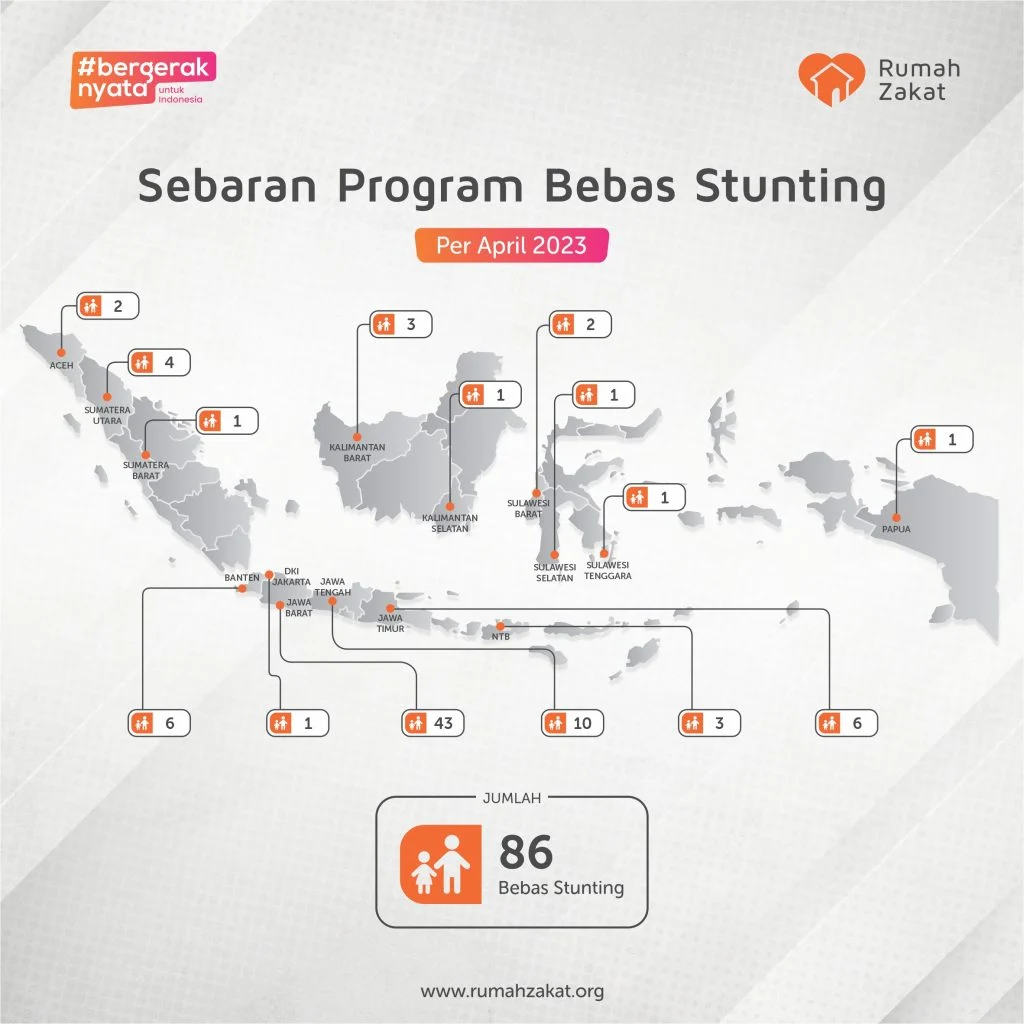
Efforts are being made to free Indonesian children from the threat of stunting by strengthening village health cadres to maximize nutritional fulfillment and reduce factors causing infections.
The medium-term goals include the formation of stunting-awareness community groups (Stunting-Free Agents), a decrease in stunting rates, and a reduction in the causes of stunting through achieving family food security, good parenting practices, and a clean environment. The long-term goal is to eliminate stunting among Indonesian children (no new cases), so that Indonesia will have a highly competitive generation ready to build the nation.
In its implementation, Rumah Zakat has 86 stunting-free village points.
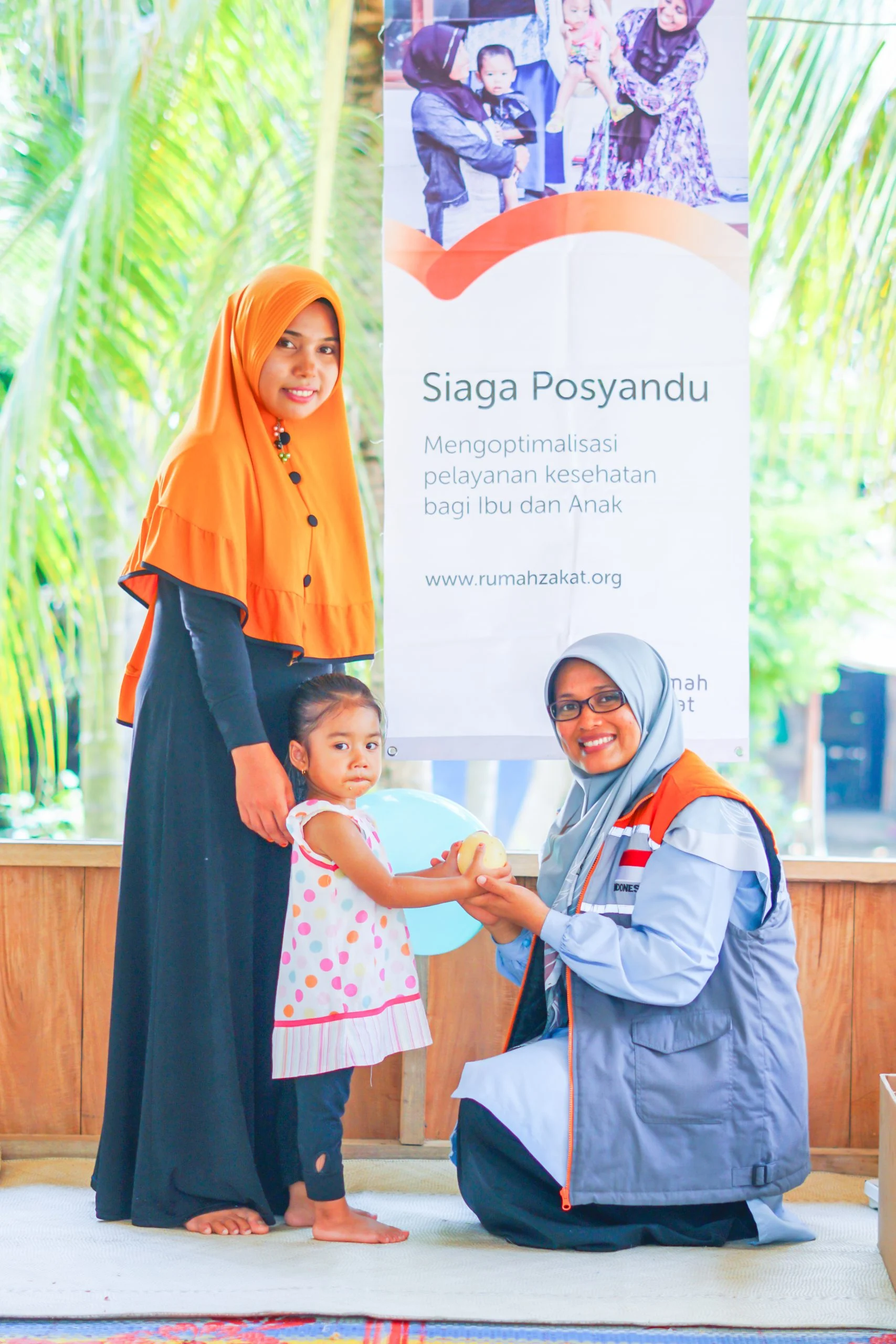
Posyandu Readiness
A program to maximize the function of Posyandu as a health service center for mothers, babies, and toddlers, especially in monitoring child growth and development. The implementation of this program includes updating and standardizing facilities and infrastructure, training cadres, an effective 5-table system, classes for pregnant and breastfeeding mothers, and providing additional food for toddlers.

Nutrition for Dhuafa Children
Providing nutritional assistance to children with nutritional issues, given intensively to improve their nutritional status. The implementation of this program includes providing nutritional assistance packages (complementary feeding), support for milk provision (as prescribed by a doctor), and monitoring child growth and development.
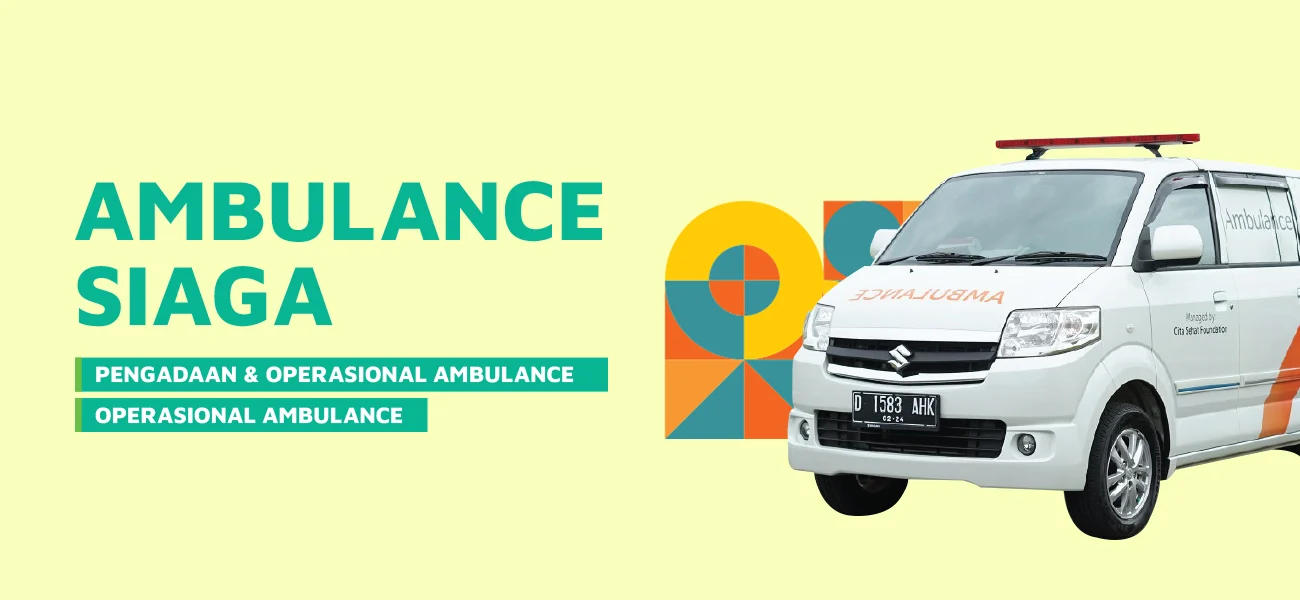
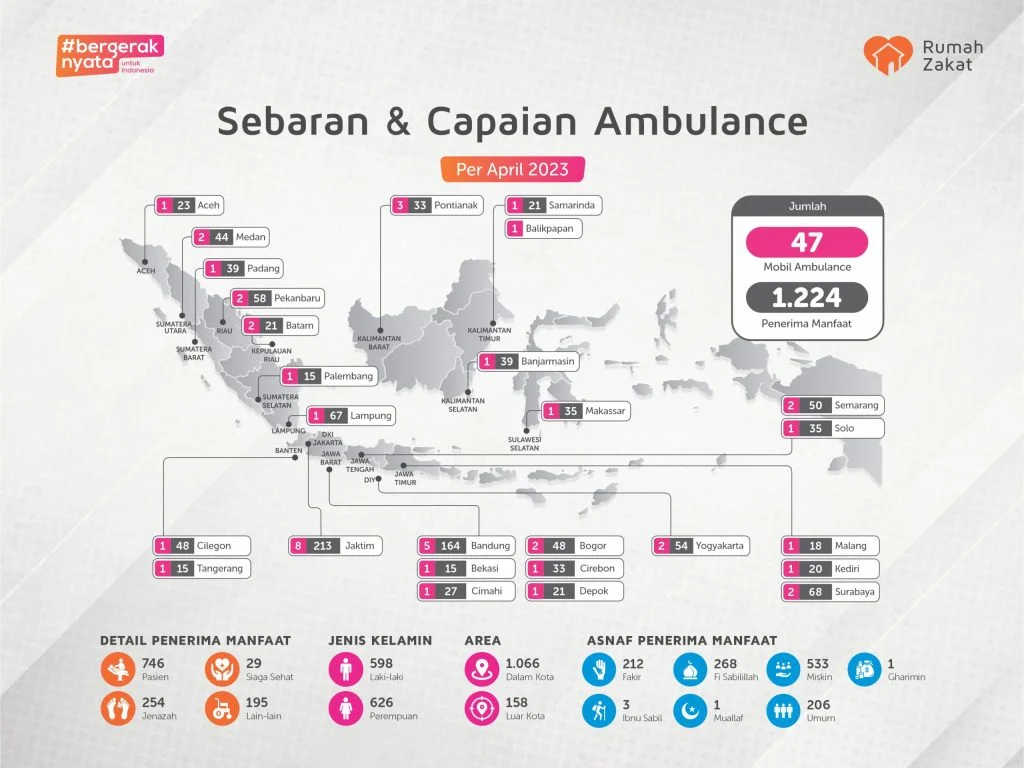
This is a program for providing and operating ambulances to offer affordable patient/corpse transport services for those in need.
This program aims to ease the burden on underprivileged individuals by providing access to healthcare services with a focus on patient and/or corpse transport.
In its implementation, Rumah Zakat operates 47 ambulances across Indonesia. During April 2023, these ambulances served 1,224 beneficiaries in need.
MASS CIRCUMCISION
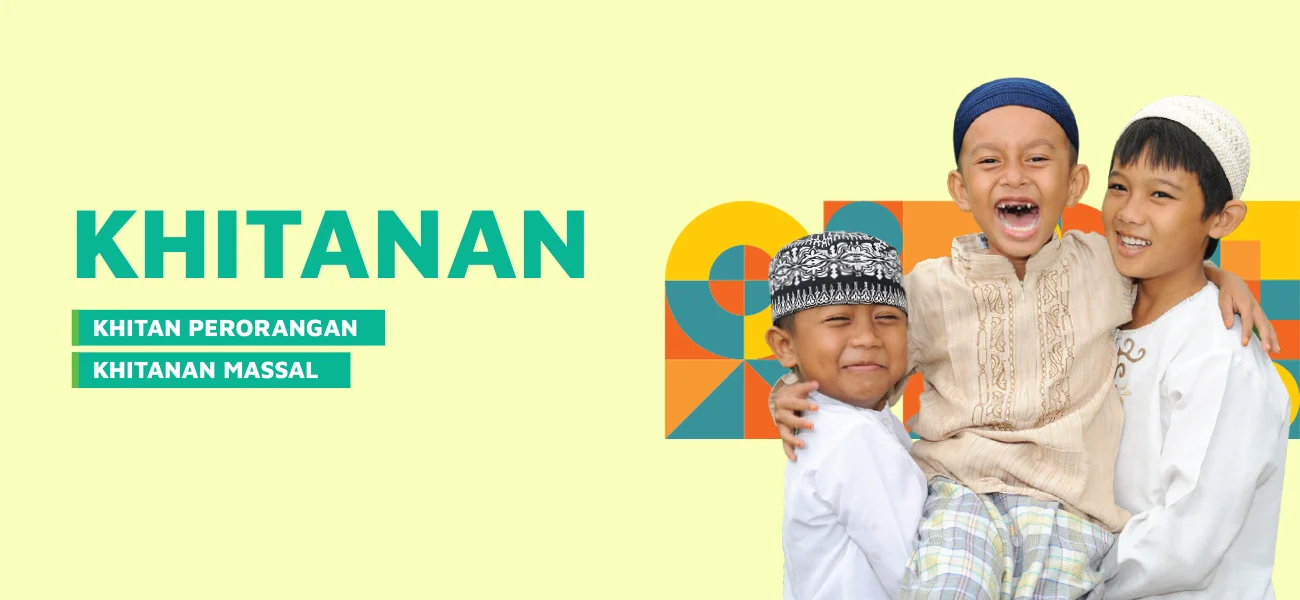
This is a program providing free mass circumcision services for those in need. The implementation of this program includes health screenings, provision of medication, circumcision services, and child gift packages.
HEALTH READINESS
